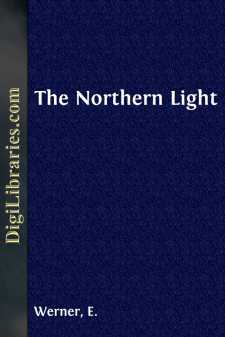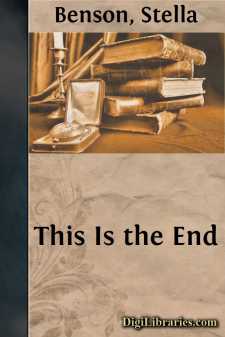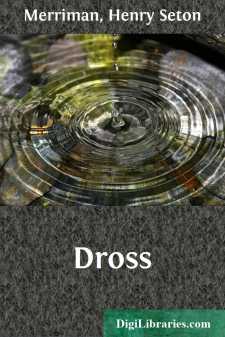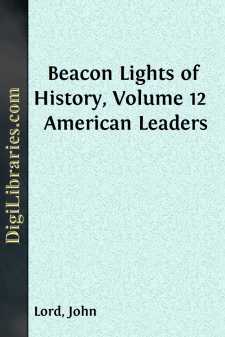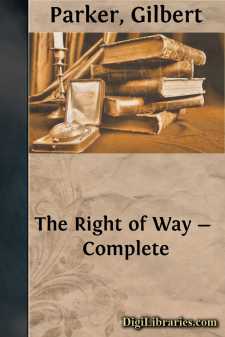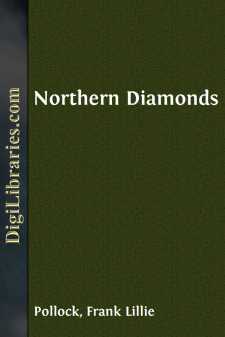Fiction
- Action & Adventure 180
- Biographical 15
- Christian 59
- Classics 6965
- Coming of Age 5
- Contemporary Women 3
- Erotica 8
- Espionage/Intrigue 12
- Fairy Tales, Folklore & Mythology 236
- Family Life 169
- Fantasy 117
- Gay 1
- General 596
- Ghost 32
- Historical 808
- Horror 43
- Humorous 160
- Jewish 25
- Legal 4
- Medical 22
- Mystery & Detective 315
- Political 49
- Psychological 41
- Religious 64
- Romance 159
- Sagas 11
- Science Fiction 730
- Sea Stories 113
- Short Stories (single author) 537
- Sports 10
- Suspense 1
- Technological 8
- Thrillers 2
- Urban Life 31
- Visionary & Metaphysical 1
- War & Military 173
- Westerns 199
Fiction Books
Sort by:
THE MAHATMA* [*] Mahatma, "great-souled." "One of a class of persons withpreter-natural powers, imagined to exist in India andThibet."—New English Dictionary. Everyone has seen a hare, either crouched or running in the fields, or hanging dead in a poulterer's shop, or lastly pathetic, even dreadful-looking and in this form almost indistinguishable from a skinned cat, on the...
more...
by:
E. Werner
The grey mist of an autumn morning lay upon forest and field. Through its shadowy vapors a swarm of birds were sweeping by, on their Southward way, now dipping low over the tops of the tall fir forest, as if giving a last greeting to their summer homes, and then rising high in the air; turning their flight due South, they disappeared slowly through the fog. At the window of a large manor-house, which...
more...
by:
Stella Benson
THIS IS THE END BY STELLA BENSON 1917 This is the end, for the moment, of all my thinking, this is my unfinal conclusion. There is no reason in tangible things, and no system in the ordinary ways of the world. Hands were made to grope, and feet to stumble, and the only things you may count on are the unaccountable things. System is a fairy and a dream, you never find system where or when you expect it....
more...
Chapter I Mushrooms"La célébrité est comme le feu, qui brûle de près et illumine de loin."Under a glorious sky, in the year 1869, Paris gathered to rejoice in the centenary of the birth of the First Napoleon. A gathering this of mushroom nobility, soldiery and diplomacy, to celebrate the hundredth anniversary of the greatest mushroom that ever sprang to life in the hotbed of internecine...
more...
Chapter I. How I Became a Secret Agent "O Jerum, jerum, jerum, quâ motatio rerum." Half past three was heard booming from some clock tower on the twelfth day of June, 1913, when Mr. King, the Liberal representative from Somerset, was given the floor in the House of Commons. Mr. King proceeded to make a sensation. He demanded that McKinnon Wood, the House Secretary for Scotland, reveal to the...
more...
by:
John Lord
1782-1850. THE SLAVERY QUESTION. The extraordinary abilities of John C. Calhoun, the great influence he exerted as the representative of Southern interests in the National Legislature, and especially his connection with the Slavery Question, make it necessary to include him among the statesmen who, for evil or good, have powerfully affected the destinies of the United States. He is a great historical...
more...
by:
Louis Couperus
It was pouring with rain; and Dorine van Lowe was tired out when, by way of a last visit, she dropped in on Karel and Cateau just before dinner. But Dorine was pleased with herself. She had gone out immediately after lunch and had trotted and trammed all over the Hague; she had done much, if not everything; and her tired face looked very glad and her bright black eyes sparkled. "Have meneer and...
more...
by:
Gilbert Parker
CHAPTER I. THE WAY TO THE VERDICT "Not guilty, your Honour!" A hundred atmospheres had seemed pressing down on the fretted people in the crowded court-room. As the discordant treble of the huge foreman of the jury squeaked over the mass of gaping humanity, which had twitched at skirts, drawn purposeless hands across prickling faces, and kept nervous legs at a gallop, the smothering weights of...
more...
by:
Bret Harte
CHAPTER I For some moments profound silence and darkness had accompanied a Sierran stage-coach towards the summit. The huge, dim bulk of the vehicle, swaying noiselessly on its straps, glided onward and upward as if obeying some mysterious impulse from behind, so faint and indefinite appeared its relation to the viewless and silent horses ahead. The shadowy trunks of tall trees that seemed to approach...
more...
CHAPTER I It was nearly eleven o'clock at night when some one knocked at the door of Fred Osborne's room. He was not in the least expecting any caller at that hour, and had paid no attention when he had heard the doorbell of the boarding-house ring downstairs, and the sound of feet ascending the steps. He hastened to open the door, however, and in the dim hallway he recognized the dark,...
more...



